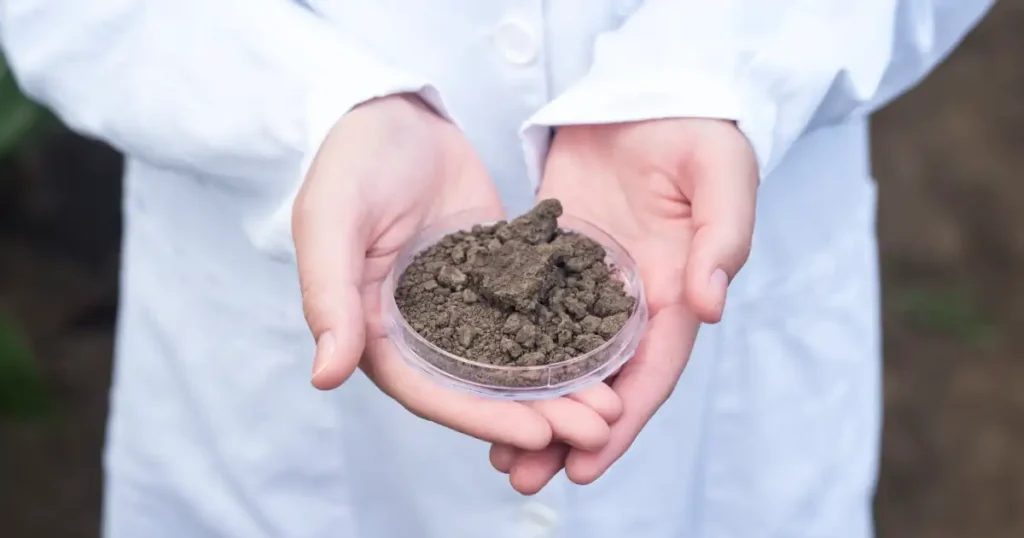Soil analysis is an essential process for anyone involved in agriculture, gardening, or land development in Perth. Understanding the composition and health of the soil can significantly impact plant growth, crop yields, and the sustainability of agricultural practices. This article explores the importance of soil analysis, the methods used, and the benefits it offers to residents and professionals in Perth.
Understanding Soil Composition
Before delving into soil analysis, it’s vital to grasp what soil consists of. Soil is a complex mixture of organic matter, minerals, gases, liquids, and countless microorganisms. The composition of soil varies widely across different regions, which is why soil analysis in Perth is critical for optimizing land use and ensuring agricultural productivity.
Key Components of Soil
- Minerals: Comprising sand, silt, and clay, these particles determine soil texture and drainage properties.
- Organic Matter: This includes decomposed plants and animals, which enrich the soil and improve its fertility.
- Microorganisms: Bacteria, fungi, and other organisms play a crucial role in nutrient cycling and soil health.
- Water and Air: The presence of water and air in the soil is essential for supporting plant life.
Why Soil Analysis Matters
Soil analysis provides valuable insights into the nutrient content, pH levels, and overall health of the soil. By conducting regular soil tests, individuals and businesses in Perth can make informed decisions regarding land management, crop selection, and fertilization practices.
The Soil Analysis Process
Soil analysis typically involves several steps, each designed to yield accurate and useful information about soil health.
1. Sampling the Soil
The first step in the soil analysis process is collecting soil samples from the area of interest. It is important to gather samples from different locations and depths to obtain a representative view of the soil composition.
2. Laboratory Testing
Following collection, the samples are submitted to a lab for examination. Typical experiments carried out in soil analysis in Perth include:
- pH Testing: Determines the acidity or alkalinity of the soil.
- Nutrient Analysis: Measures the levels of essential nutrients like nitrogen, phosphorus, and potassium.
- Texture Analysis: Identifies the proportion of sand, silt, and clay particles.
3. Interpreting the Results
After the laboratory tests are complete, the results must be interpreted. Soil analysis reports provide detailed information about nutrient levels and soil pH, which can be used to make informed decisions about soil management.
4. Implementing Recommendations
Based on the analysis results, recommendations for soil improvement can be made. This may include adjusting pH levels, adding organic matter, or applying specific fertilizers to enhance soil health.
Benefits of Soil Analysis in Perth
Soil analysis in Perth offers a plethora of advantages for farmers, gardeners, and land developers alike. Understanding the composition and health of the soil not only helps in optimizing land use but also contributes to sustainability and improved crop yields. Here are some key benefits of conducting soil analysis in Perth:
1. Improved Crop Yields
One of the most significant advantages of soil analysis in Perth is the potential for improved crop yields. By understanding the nutrient composition of the soil, farmers can apply targeted fertilizers that enhance crop growth. For instance, if soil analysis reveals a deficiency in nitrogen or phosphorus, farmers can apply the necessary fertilizers to address these issues. This tailored approach ensures that crops receive the essential nutrients they need to thrive, leading to higher yields and better-quality produce. By maximizing agricultural output, soil analysis in Perth plays a crucial role in meeting the food demands of the growing population.
2. Cost-Effective Solutions
Regular soil testing is a cost-effective solution for land management. Many individuals and businesses may not realize that soil analysis in Perth can save money in the long run. By identifying the specific nutrient needs of the soil, farmers and gardeners can avoid the unnecessary application of fertilizers and amendments. This targeted approach not only reduces costs but also minimizes waste. By investing in soil analysis, individuals can make informed decisions about when and how much to fertilize, leading to efficient resource use and reduced expenses.
3. Environmental Sustainability
Another important benefit of soil analysis in Perth is its contribution to environmental sustainability. Responsible land management practices are essential for preserving natural resources and minimizing environmental impact. By conducting regular soil tests, individuals can avoid over-fertilization, which can lead to nutrient runoff into local waterways. Soil analysis helps ensure that fertilizers are applied judiciously, reducing the risk of water pollution and promoting healthier ecosystems. Moreover, healthy soil supports biodiversity, which is crucial for maintaining ecological balance.
4. Better Garden Management
For gardening enthusiasts, soil analysis in Perth provides valuable insights into the best plants to grow based on specific soil conditions. By understanding the nutrient levels and pH balance of their soil, gardeners can choose plants that are well-suited to their environment. For instance, whereas some plants like alkaline environments, others do best in acidic soils. Armed with the information from soil analysis, gardeners can cultivate vibrant and thriving gardens, leading to a more enjoyable gardening experience. This knowledge helps ensure that plants receive the right nutrients, reducing the likelihood of disease and promoting robust growth.
5. Enhanced Soil Health
Regular soil analysis in Perth allows for the monitoring of soil health over time. Soil health is a critical factor in sustainable land management and agricultural practices. By understanding changes in soil composition, individuals can implement necessary amendments to maintain optimal soil conditions. For instance, if soil analysis indicates a decline in organic matter, landowners can incorporate compost or cover crops to improve soil structure and fertility. This proactive approach to soil management fosters long-term soil health and productivity.
6. Tailored Fertilization Plans
Soil analysis in Perth empowers farmers and gardeners to develop tailored fertilization plans that cater to the specific needs of their soil. By analyzing the nutrient content and pH levels, individuals can determine the precise type and amount of fertilizer required. This tailored approach ensures that plants receive the necessary nutrients without the risk of over-fertilization. As a result, crops and gardens flourish, and landowners can achieve their agricultural goals more effectively.
7.Research and Development Opportunities
Unlocking New Possibilities
Research and development play a pivotal role in advancing our understanding of soil and its impact on agriculture and environmental health. By conducting thorough analysis and experiments, individuals and organizations can unlock new possibilities for improving soil management practices. This pursuit of knowledge fosters innovation, ultimately leading to sustainable practices that benefit both local communities and the broader ecosystem.
Collaborative Efforts
Collaborative efforts between academic institutions, government agencies, and agricultural businesses are essential for maximizing research potential. When diverse groups come together, they can share resources, expertise, and data that lead to significant breakthroughs in soil science. Such collaboration can result in developing innovative solutions to common challenges faced in agriculture, such as nutrient depletion, soil erosion, and contamination. Through joint research initiatives, stakeholders can create comprehensive studies that provide valuable insights into soil health and sustainability.
Data-Driven Decision Making
With the increasing availability of technology, data collection and analysis have become more accessible than ever. By utilizing advanced tools and methods, researchers can gather detailed information about soil properties, including pH levels, nutrient content, and microbial activity. This data-driven approach empowers landowners to make informed decisions based on scientific evidence rather than guesswork. Consequently, improved understanding of soil dynamics can lead to optimized fertilization practices and enhanced crop yields.
Training and Capacity Building
Educational initiatives focusing on soil analysis and management can significantly contribute to research and development opportunities. By offering training programs for farmers, gardeners, and agricultural professionals, individuals gain the skills necessary to interpret soil test results and implement best practices. Workshops and seminars can facilitate knowledge sharing and encourage the adoption of innovative techniques. This capacity-building approach not only benefits participants but also fosters a culture of continuous improvement within the agricultural community.
Innovation in Agricultural Practices
The knowledge gained from research and development initiatives can drive innovation in agricultural practices. For instance, findings from soil studies may lead to the identification of effective cover crops or organic amendments that enhance soil health. By integrating these practices into their routines, farmers can improve soil structure, increase organic matter content, and enhance biodiversity. The implementation of innovative solutions ensures that agricultural systems remain resilient, productive, and environmentally friendly.
Environmental Monitoring
Another significant aspect of research and development is environmental monitoring. By examining the interactions between soil, water, and air quality, researchers can better understand how agricultural practices impact the environment. Through monitoring efforts, it becomes possible to assess the effectiveness of conservation practices and identify areas for improvement. This knowledge can inform policy decisions and guide sustainable land management strategies.
8. Community Engagement and Education
Soil analysis in Perth also fosters community engagement and education. As individuals learn more about the importance of soil health and sustainable practices, they become better equipped to make informed decisions about land management. Workshops and seminars on soil testing can help raise awareness about the benefits of soil analysis and encourage responsible practices within the community. By promoting education and engagement, soil analysis plays a crucial role in cultivating a culture of sustainability in Perth.
4. Better Garden Management
For gardeners, soil analysis provides insights into the best plants to grow based on soil conditions. This knowledge helps ensure a thriving garden and reduces the likelihood of plant diseases.
Common Soil Issues in Perth
Understanding common soil problems in Perth can enhance the effectiveness of soil analysis. Here are some issues that may be identified through testing:
. Soil Acidity
Perth’s soils can often be acidic, which may hinder plant growth. Regular soil analysis helps identify pH imbalances, allowing for corrective measures to be implemented.
. Nutrient Deficiencies
Certain nutrients may be lacking in the soil, leading to poor plant performance. Soil analysis helps identify these deficiencies, guiding amendments that will restore nutrient balance.
. Soil Erosion
Erosion is a significant concern in Perth, particularly in areas with loose or sandy soils. Understanding soil structure through analysis can aid in developing erosion control strategies.
Conclusion
Soil analysis serves as an invaluable tool for anyone involved in land management, agriculture, or gardening. By unlocking the secrets hidden beneath the surface, individuals gain the ability to make informed decisions that enhance soil health, promote sustainability, and improve crop yields. This knowledge empowers landowners to understand the unique characteristics of their soil, allowing them to implement effective practices tailored to their specific needs.
When one engages in regular soil testing, the benefits extend beyond personal gains. Such practices contribute to the broader goal of environmental stewardship in the region. Understanding soil composition and health is crucial for responsible land management. Individuals who prioritize soil analysis can better manage nutrients and prevent over-fertilization, reducing the risk of runoff that can pollute local waterways. In this way, the responsibility towards the environment is upheld, fostering a healthier ecosystem for all.
The insights gained from soil analysis also have profound implications for agricultural practices. When farmers understand the nutrient deficiencies in their soil, they can apply targeted amendments that maximize productivity. This approach not only leads to better crop yields but also enhances the quality of the produce. A more productive farm means increased food security, which is vital for communities that rely on local agriculture. Moreover, when farmers adopt sustainable practices informed by soil analysis, they contribute to the long-term health of the land, ensuring that it remains productive for future generations.
In addition to agricultural benefits, gardening enthusiasts can also reap the rewards of soil analysis. By knowing the specific needs of their soil, gardeners can choose the right plants that will thrive in their unique conditions. This tailored approach reduces the risk of plant diseases and promotes lush, vibrant gardens. For individuals who invest time and resources into their gardens, this knowledge can transform gardening from a hobby into a rewarding endeavor that yields beautiful and healthy plants.
The impact of soil analysis is not confined to individual landowners; it extends to the community as a whole. By embracing practices that prioritize soil health, individuals contribute to a culture of sustainability. Educational workshops and community programs can foster awareness about the importance of soil analysis, empowering others to take action. Such community engagement can lead to collective efforts that enhance local agricultural practices and promote environmental responsibility.
Furthermore, the continuous research and development opportunities that arise from soil analysis play a vital role in advancing agricultural science. Collaborations between farmers, researchers, and agricultural organizations can lead to innovative solutions and improved practices that benefit everyone involved. As data is collected and shared, individuals can learn from one another, adapting successful strategies that enhance productivity while preserving environmental integrity.
Ultimately, embracing soil analysis is a crucial step toward a healthier, more productive future. When individuals invest in understanding their soil, they are not just benefiting themselves; they are contributing to the well-being of their communities and the environment. The knowledge gained through soil testing fosters a deeper appreciation for the land and encourages responsible stewardship of natural resources. In a world increasingly focused on sustainability, prioritizing soil health is a vital component of achieving long-term ecological balance. By taking these steps, everyone can ensure a thriving ecosystem that supports both agricultural productivity and environmental sustainability.
Read More:























